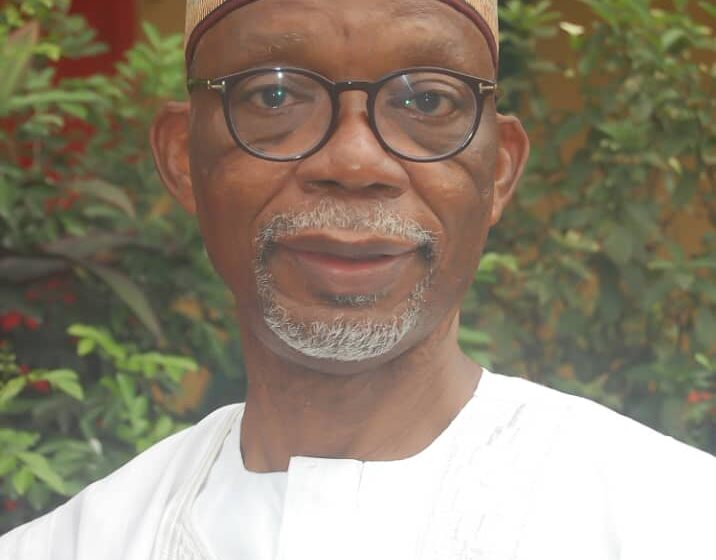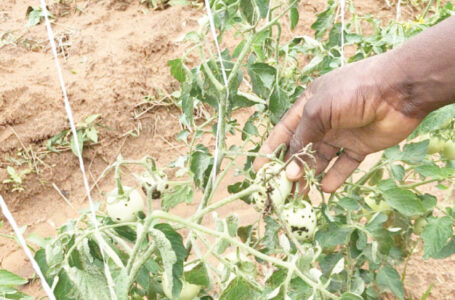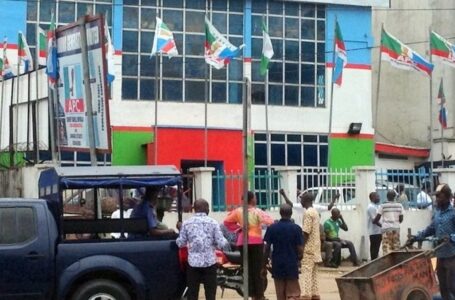Our industries must be digitized and revive ceramics for economic survival – Oaikhinan


By Ibrahim Adeleke
The CEO of Epina Technologies Ltd., Prof. Eguakhide Oaikhinan, has said Nigeria needs to digitise all its industries and urgently revive its ceramic industry if it is ready to develop its economy and grow out of poverty.
He said this during an economic summit tagged TECNARGILLAR 2022 in Italy.
Oaikhinan, who led a Nigerian delegate to the summit, said digitisation and innovation of industries could likely be the best bet to achieve the Seventeen Sustainable Global Goals.
“Tecnargilla – an international marketplace in the heart of the most creative, innovative, and technological country for surfaces in the world. Organised biannually by ACIMAC (Association of Italian Manufacturers of Machinery and Equipment for Ceramics), ITA – Italian Trade Agency, and IEG – Italian Exhibition Group, the exhibition offers the best of innovation in aesthetics and processes for the ceramic industry sector every two years.
“Tecnargilla is a strategic event and the ceramic industry’s leading trade fair dedicated to technologies for ceramic tiles, sanitary ware, and tableware. It held from September 27th to 30th, 2022 as a single exhibition to design the future of surfaces. It was an intensive week, full of new stimuli on which to continue to invest in terms of ceramic resources, ingenuity, and quality. The fair was an opportunity to exchange information and knowledge unlike any other among 450 international exhibitors and over 30,000 professionals that attended the event,” he said.
According to him, his presentation at the summit on ‘Trends and Investment Opportunities in the Ceramic Industry Sector in Nigeria,’ is a revelation for both African delegates and the World Leaders in ceramic manufacturing business.
He noted: “The international companies which participated at Tecnargilla have created the most efficient and sustainable factories in the world. They have revolutionised their production processes and the range of end user applications with the creation of enormous cut-to-size slabs. They have focused on digital technologies and robotics, becoming the global reference for innovation and technology to the ceramic industry sector.
“The focus of Tecnargilla was in seven areas: Digitalisation: solutions and software for the digitalisation of factories and the evolution of production processes; Raw Materials: preparing raw materials and products for installation; Decoration: conventional and digital decoration systems; Finishing: finishing and cutting large and extra-large sizes; Handling and Packaging: Internal handling and packaging solutions; Logistic and Transportation: all the most innovative requirements to resolve coordination problems; Green Solutions: reducing polluting emissions, fumes, wastewater, and other industrial waste. Renewable Energy, co-generation.
Reiterating the potential of ceramics industry to uplift the Nigerian economy, Oaikhinan said Nigeria is open for business and its investment climate is continually improving.
He stated that investment in the first half of 2022 in Nigeria was $10.1billion, saying there was no new foreign direct investment in the Ceramic Industry Sector in the period covered.
“Nigerians favour the diversification of the economy, and promotion of investments linked to natural resources and industrial activities. Investment opportunities abound in ceramic bricks, electrical porcelain, tiles, sanitary wares, whitewares, glazes and pigments production in Nigeria. Other areas of investment opportunities include solid minerals processing, laboratories for materials and products testing, marketing of ceramic production technologies and facilities (e.g., equipment and machines, etc.), as well as in ceramic education and training. Nigeria has 170 universities, out of which 79 are private, 43 are federal, and 48 are state universities; and the National Open University that has over half a million students’ enrollment. As of 2019, there were 420 engineering and 1080 science programmes respectively offered by Nigerian universities, but none offered ceramic courses needed in effective national human capacity building and development.
“However, the multiple exchange rate system and limited access to foreign exchange is a significant obstacle for businesses to operate. This exchange rate system and its inherent volatility deter investments in Nigeria. Other factors that have been a bane to the growth of economy include restrictive trade policies, regulatory bottlenecks, delays in passage of legislative reforms, an inefficient property registration system, a slow and ineffective judicial system, unreliable dispute resolution mechanisms, and the use of Central Bank financing.
“Unreliable power supply for industries and companies to function efficiently and profitably, the inability to get goods to market without delay, and an underdeveloped ICT infrastructure to enable a modern digitalised economy affect investments in Nigeria. Ceramic development is must for the attainment of the United Nations’ Sustainable Development Goals (SDGs) by the year 2030.
Making recommendations to revive the industry, he said Nigeria needs a response to its desire for sustainable ceramic growth.
“Developed countries have advanced far beyond its beginnings in the production of traditional ceramics and have adopted new processes and advances in manufacturing techniques to produce varieties of ceramics, particularly ceramic tiles that are self-cleaning upon exposure to water and advanced ceramics. Nigeria is yet to have a breakthrough in the production of traditional ceramics, but the nation prosperity will stem from an innovative manufacturing processing of high-quality valueadded ceramic products. Nigeria with a population of over 200million represents an emerging market for ceramic education, equipment, machines, technologies, and products.
“Nigeria cannot grow or develop a road map for its ceramic industry sector without looking at the raw material sourcing and the suppliers, the production processes, quality control, laboratories, finishing, coordination on one hand and exports, imports, shipping methods, costing techniques and markets on the other hand. In view of the foregoing, it is humbly recommended that the Government should consider the huge demand of ceramic materials/products needed in the country,and that the government and businesspeople need to understand and match the productive needs of the ceramic industry sector to enable it to reformulate even more performing and sustainable products and services.
“We need to guarantee solutions that can resolve with immediacy and flexibility the abundant availability of raw materials and energy resources provide. Estimated mineral endowment under the ground in Nigeria is between $700billion to $1trillion. The lack of information on their potentials has limited their uses in the ceramics and allied industries. The circular economy is no longer a choice; it is a necessity.
“Nigeria should take advantage of ceramic manufacturers’ urgent need for reducing energy consumption as rapidly as possible to avoid loss of their competitiveness and profitability. There are needs for raw materials management that can provide complete customer service throughout the manufacturing process: from support at the deposits to complete processing plants. A service that will set Nigeria apart from the rest must emerge.
“The country needs a business group that manages geological and mining research in addition to the design and construction of plants and machines for mining and industrial waste recovery. Such a group should also specialise in extracting and supplying raw materials for diverse industrial applications. In our national areas of strength (SWOT) and available raw materials like gold, kaolin, talc, feldspar, calcite, dolomite Nigeria can drive home its ceramic development plans/scale up intra trade with the World.
“There is a dire need for Ceramic Industries Skills Acquisition Centre (CISAC) in Nigeria to focus on flexible sector-specific courses, provide practical experience opportunities for trainees and enhance quality assurance through international benchmarking of its training programmes to meet industry needs. CISAC will provide an emerging opportunity for foreign trainers and institutions to support ceramic competency-based curriculum development, growth of private training providers, a strong short-term apprenticeship system skills training for interested groups through externally funded projects, and piloting of performance-based contracts for extensive rural training facilities. Establishment of such a center will help to move domestic ceramic production to the global stage, boost ceramic industry’s contributions to the growth of our National Gross Domestic Product, generate foreign savings through ceramic products export, accelerate the development of the solid mineral sector, increase wealth creation by rural communities and help local entrepreneurs to set up micro, small, and medium-scale ceramic enterprises (MSMEs) or ventures, in controlling and solving the problem of slow economic growth, poverty, unemployment, and youth restiveness in many communities.
“Nigeria represents a potentially attractive entry-point for an investor/joint-venture partner to foster service, collaboration, innovation, and entrepreneurship in the emerging Ceramic Industry Sector of Africa. We must act now to close gaps with developed countries in ceramic production for current and future generations! Now is the time to scale up. African countries must work together for a more sustainable ceramic industry future. Every next step will be a better one if taken with a deeper appreciation of our shared and lived experience.”








